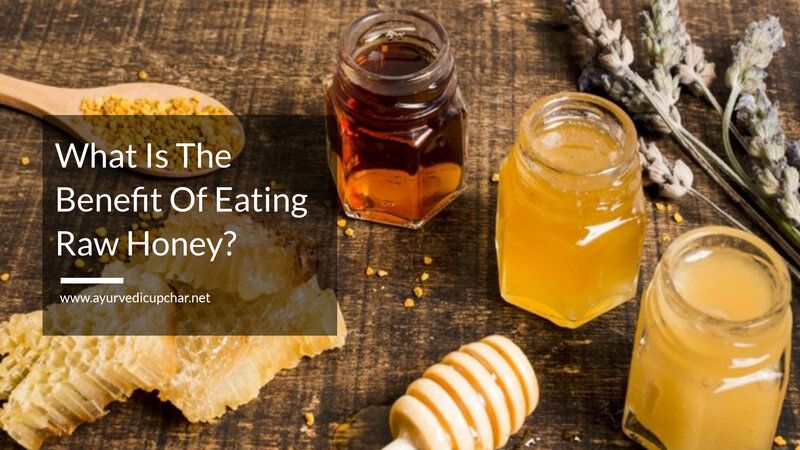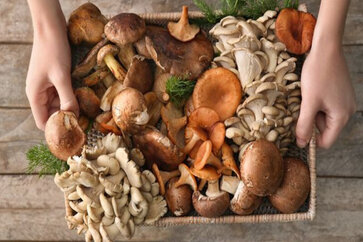What Is The Benefit Of Eating Raw Honey?

The sweet and syrupy goodness that is honey is famous for having myriad health benefits and is one of the most unique (and tasty) natural foods out there.
If you’re like me, you’re drawn to honey like a bee, no matter where you find it – in a grocery store, at the farmers market, or in your own pantry.
But there are so many varieties to choose from today that it is sometimes difficult to find the best one, especially when you are looking for the healthy effects of honey.
And although the main distinction is between natural and artificial honey, which we teach you to distinguish here, even the natural variety comes in many forms.
One of the main is raw and regular (or pasteurized) honey. But is raw honey better than other natural varieties, and if so, how? We address this and other honey-related questions below.
What is raw honey?
If you take a jar of raw honey and place it next to a jar of regular honey, you will notice that raw honey is usually significantly more opaque and cloudy.
It also comes in a variety of colors and scents, depending on the type of flowers that pollinated the bees that made that specific honey pot.
Raw honey has all of these unique qualities because it is not pasteurized, which means that it does not undergo any thermal processing. Instead, it drains directly from the honeycomb.
Beekeepers will filter out debris, such as plant pieces, honeycomb, beeswax, and bees, but there are even those varieties of raw honey that have a whole piece of honeycomb suspended in the honey.
To find raw honey in a store or wherever you buy your honey, it must contain the label “raw”, which should not be confused with “organic” or “pure” honey, as both can be pasteurized.
How is raw honey different from regular honey?
In the past, all honey was raw, as it is one of the rare organic substances that does not spoil. However, today much of the honey we find on supermarket shelves undergoes thermal processing to improve its purity, smoothness, flavor, and appearance.
It also has a longer shelf life, as pasteurized honey tends to crystallize more slowly than raw honey. Simultaneously, it has been argued that along with pasteurization.
Many antioxidants contained in raw honey (flavonoids and phenolic acids) and other beneficial additives (such as bee pollen and propolis) are lost or their effect is weakened.
Also, regular honey often contains added sweeteners (such as high fructose corn syrup and brown rice syrup) to reduce its cost, even if the label says it is 100% honey.
How is raw honey most beneficial for your health?
Unlike pasteurized honey, raw honey contains natural components that have been shown to be beneficial for human health.
It does not contain any additional sweeteners, but it is the sweetener of choice for many health-minded people as, in addition to containing sugar, it is packed with other beneficial nutrients.
It has been argued that raw honey contains more antioxidants, as some of them may have been destroyed during thermal processing. Other than that, raw honey has some propolis and bee pollen, the benefits of which we discuss below.
Propolis
Propolis is a sticky substance produced by bees. Essentially, it is the “glue” that holds a hive together. However, in addition to its function as a building block of hives.
Scientists believe that it may also be beneficial to human health. In particular, a 2017 review article found that propolis has the following benefits:
- antioxidant
- anti-inflammatory
- antibacterial
- antifungal
- pain-relieving
Apart from that, it contains many vitamins and nutrients, such as B vitamins, vitamins C and E, magnesium, potassium, and enzymes that are beneficial for human health. Bee pollen
Bee pollen
Bee pollen leaks out during the pasteurization process, but this substance has been found to have the following health benefits:
- antioxidant
- anti-inflammatory
- antibacterial
- antifungal
- pain-relieving.
Other than that, bee pollen contains the following beneficial nutrients: amino acids, vitamins A and C, and low levels of calcium, sodium, and magnesium.
And although honey itself has antibacterial and healing properties, raw honey that contains more bee pollen can be more potent than pasteurized honey.
In short, raw honey is richer in nutrients than regular honey, making it a better alternative, especially for people looking for a healthier alternative.
Note: A word of caution for those with severe pollen allergies. Consult your doctor before eating raw honey, as it can cause allergy symptoms. Children under one year of age should also stay away from any form of honey.























